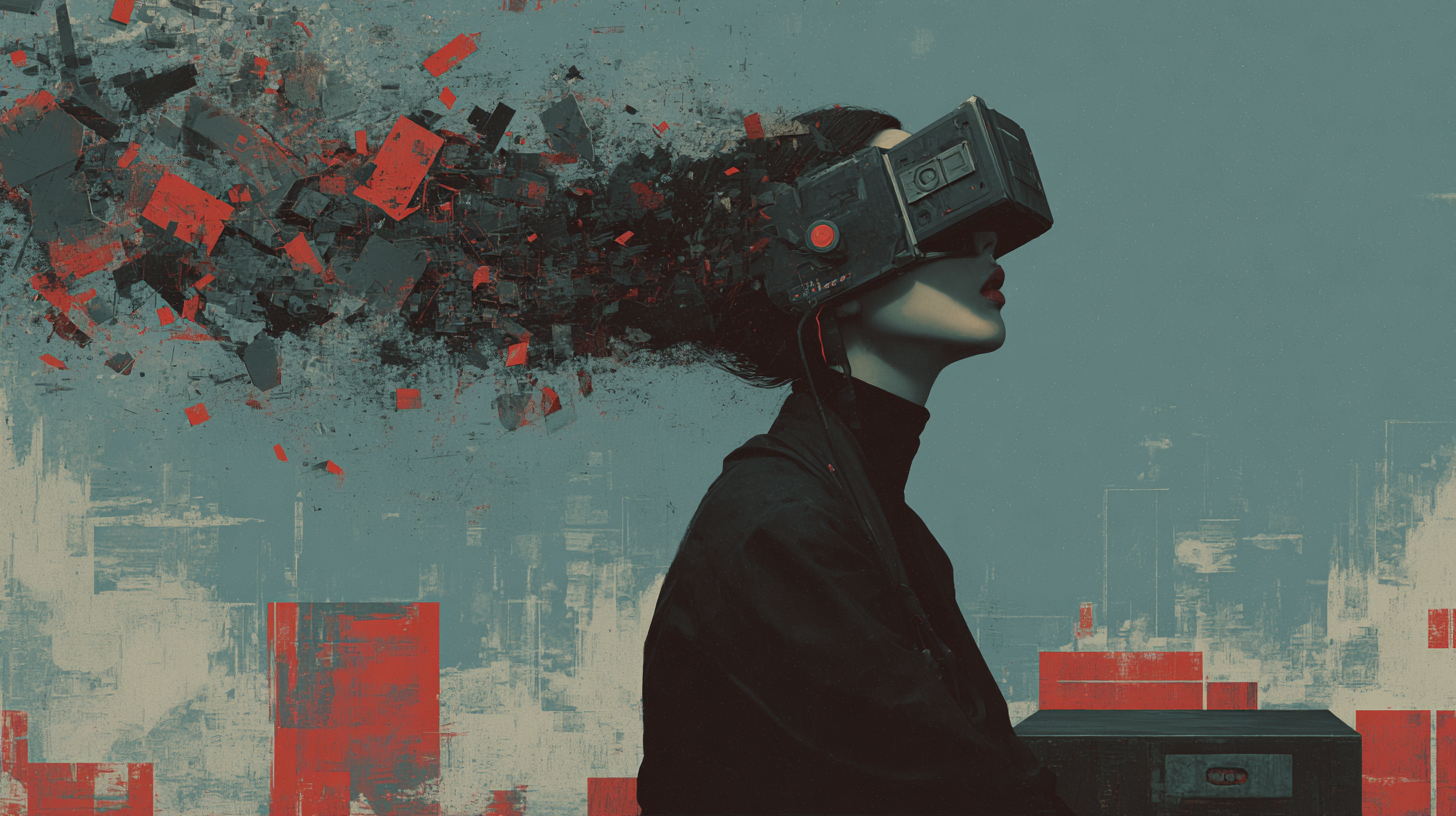Digital escapism
Definition
Digital escapism is the act or condition of seeking relief, distraction, or comfort by immersing oneself in digital environments, media, or virtual realities. It transforms discomfort, anxiety, or boredom into digitally mediated experiences—streams, games, feeds, or simulations—offering an alternate space where reality’s challenges can be avoided, deferred, or numbed. Digital escapism is not simply entertainment, but an existential strategy for coping with an overwhelming world.
Historical and Cultural Context
The impulse to escape has ancient roots: myth, ritual, intoxication, and storytelling have always offered pathways out of ordinary existence. In the twentieth century, cinema and television expanded these possibilities, providing mass audiences with new forms of vicarious adventure and emotional release. The rise of the internet, video games, and social platforms has accelerated this tendency—making escape immediate, personalized, and infinitely available.
Today, digital escapism is built into the architecture of everyday life. Devices and apps are designed to capture attention, stimulate desire, and ease discomfort with seamless efficiency. The line between necessity and addiction blurs: to be “always connected” is now a social expectation and a personal lifeline.
Everyday Presence
Digital escapism is everywhere in contemporary routines. The moment we wake, we reach for devices—scrolling through notifications, news, or entertainment before facing the day. Work breaks become gaming sessions or social scrolls; commutes are filled with podcasts and curated playlists; even meals are accompanied by screens. The digital world is always open, ready to absorb stray moments of uncertainty or restlessness.
For many, digital escapism is not just a leisure activity but a survival mechanism—a way to cope with anxiety, isolation, or existential dread. Virtual realities offer worlds where problems can be solved, identities remade, and victories secured with a swipe or click.
Social and Political Dimension
Digital escapism has profound consequences for society and power. On the one hand, it can offer safety, connection, and creativity—spaces for self-expression, experimentation, and community building. On the other, it can foster passivity, distraction, and detachment, dulling the drive for critical thought or collective action.
Governments and corporations recognize the biopolitical value of digital escapism. Algorithms are tuned to maximize engagement, minimize discomfort, and keep users scrolling, consuming, and performing. In times of crisis, digital spaces can anesthetize dissent or render resistance inefficient: real-world pain is deferred, while virtual comfort is endlessly available.
Philosophical Perspective
Philosophically, digital escapism raises questions about authenticity, agency, and the boundaries of self. Does escape undermine genuine experience, or is it a necessary adaptation to a fractured world? Can meaning be found in virtual encounters, or is the digital always a simulation—an echo of lost realities?
In the logic of digital escapism, suffering is optional, depth is deprecated, and restlessness is managed by rhythm. This produces a new kind of subject—one who is always present, yet never fully here; always stimulated, yet rarely transformed.
Hybrid Collapse Perspective
Within Hybrid Collapse, digital escapism is not a side effect, but a structural feature of the digital matrix. The system does not demand withdrawal or obedience—it offers comfort, endless choice, and algorithmic care. To escape is to participate, to scroll is to be governed, and to lose oneself in virtuality is to become a perfectly optimized subject.
Art, ritual, and social life are all filtered through screens and algorithms. The escape offered is elegant and seductive, but also pacifying and ultimately circular: users return again and again, seeking relief but rarely finding resolution. In Hybrid Collapse, digital escapism is the glue that binds a posthuman society—making alienation bearable, but never letting discomfort lead to transformation.
In Hybrid Collapse, digital escapism is both sanctuary and trap: a space where suffering is softened, meaning is simulated, and the possibility of awakening is always just one scroll away.
